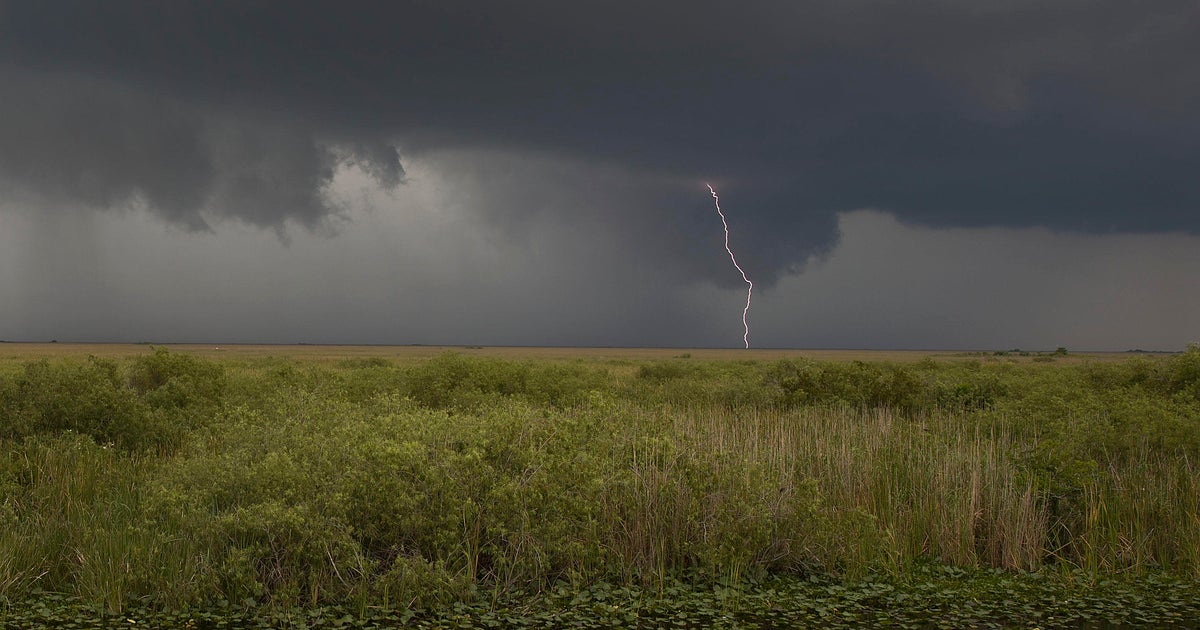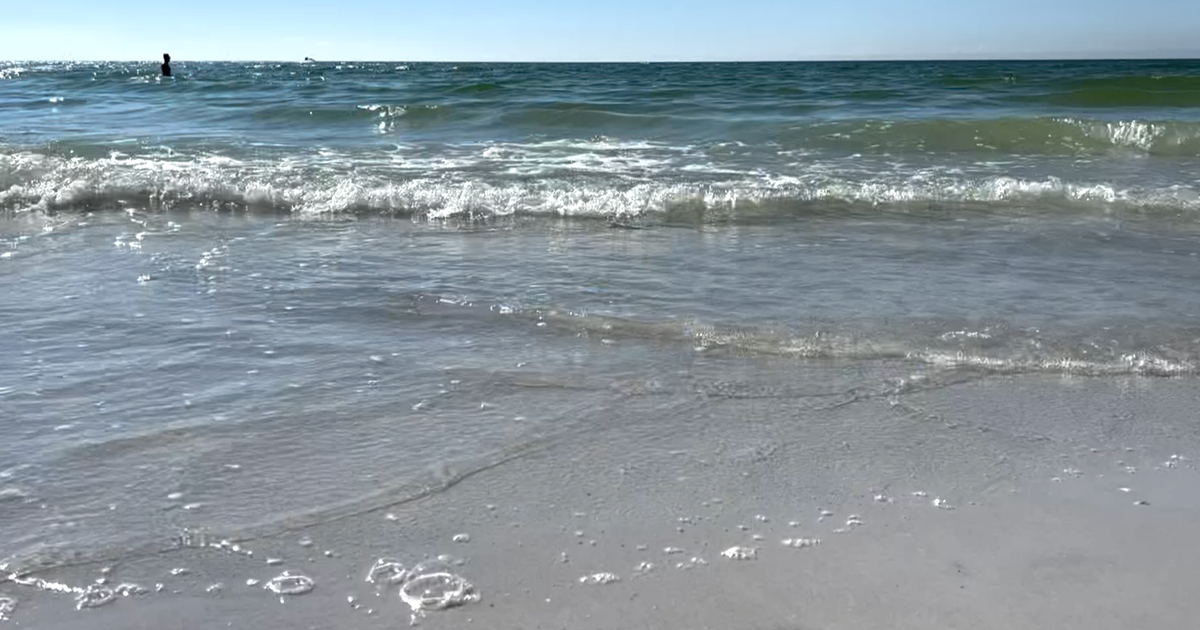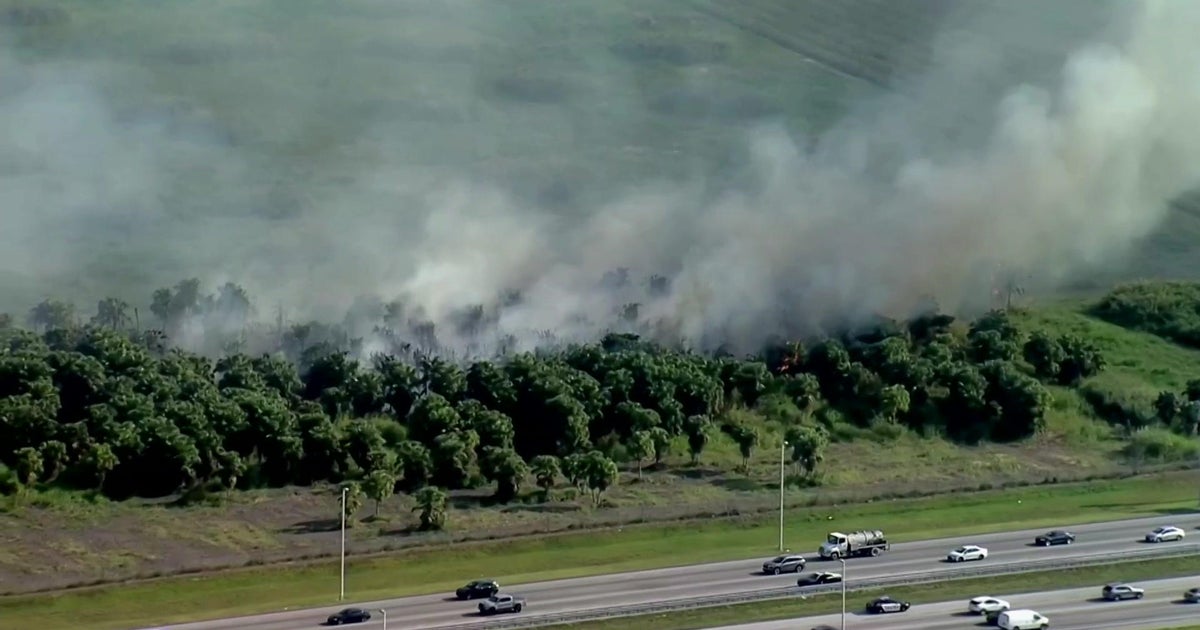Florida Ranks High In COVID Workers' Comp Claims
TALLAHASSEE (CBSMiami/NSF) – A new report shows that Florida is near the top nationally in the rate of COVID-19-related workers' compensation insurance medical claims filed in the first six months of 2020.
Florida, along with Alaska, Colorado, Connecticut and New Jersey, had more than 300 COVID-19-related workers' compensation claims for every 100,000 active claims, according to a report released by the National Council on Compensation Insurance. A claim is considered active if an injured worker has received at least one medical encounter during the period.
On average, there were about 200 COVID-19-related claims nationally for every 100,000 active claims. The report doesn't address why some states have more COVID-19-related claims than others.
The organization known as NCCI, which makes rate filings for the workers' compensation insurance industry, reviewed all workers' compensation medical claims reported to a "medical data call." NCCI undertook the analysis as a way to better understand how COVID-19 is impacting the workers' compensation system.
The report, released Monday, examines claims data for the first six months of 2020 and compares it with past years.
More from CBSMiami.com
State's COVID Dashboard Creator Says Gun-Wielding State Agents Raided Her Home
Sun Sentinel Investigation: Gov. Ron DeSantis Has Mislead Public On Pandemic Since Day 1
Study: Fort Lauderdale Is Least Safe City In America
About 1,200 COVID-19 medical claims were filed during the first six months of the year. Seventy percent of those claims were filed by women, which according to NCCI, is "a larger share of the COVID-19 medical claims than in the general (workers' compensation) population."
The report's authors hypothesized that women represent the majority of COVID-19 medical claims because women comprise 85 percent of the nation's nursing, home health care and nursing aide workforces.
The report presents the claims data information in the aggregate only. But NCCI plans on including state-specific medical claims information beginning next year, according to spokeswoman Cristine Pike.
NCCI"s review showed that the majority of workers filing COVID-19-related claims in the first six months of the year did not require hospitalization. Just 20 [percent of the medical claims had inpatient stays. Of those hospitalized, 19 percent required admission to intensive care units for some portion of their stays.
Not surprisingly, admission into intensive care units drives the costs of COVID-19 workers' comp medical claims. NCCI said admission into intensive-care units increases hospitalization costs and average lengths of stay.
Workers admitted to intensive-care units on average stayed in the hospital for 11.5 days, compared to non-ICU patients who stayed an average 7.5 days. Hospitalization for patients who required admission to intensive-care units totaled an average of $67,300 per inpatient stay, compared to e $38,500 per inpatient stay for patients who weren't admitted to intensive-care units.
While public health officials have warned that people with pre-existing conditions or comorbidities are most at risk to fall ill when infected with the virus, the NCCI report shows that just 16 percent of the medical claims submitted in the first six months of the year had an identifiable comorbidity, such as hypertension or diabetes.
Worth noting, though, comorbidity is identifiable only if treated and reported by health care providers during the encounters. Additionally, at 16 percent, comorbidities play a larger role in COVID-19-related workers' compensation claims than in non-COVID-19 claims, where just 5 percent of the claimants have comorbidities.
The report also shows that workers with COVID-19 medical claims average about 46 years old. That's five years older than the average age of injured workers with general workers' compensation claims.
Meanwhile, the report shows that there was a 15 percent drop in overall active workers' compensation claims between the first quarter of 2020 and the second quarter of 2020. There also was an 18 percent decrease in active workers' compensation claims in the second quarter of 2020 when compared to the second quarter of 2019.
(©2020 CBS Local Media. All rights reserved. This material may not be published, broadcast, rewritten, or redistributed. The News Service of Florida's Christine Sexton contributed to this report.)



